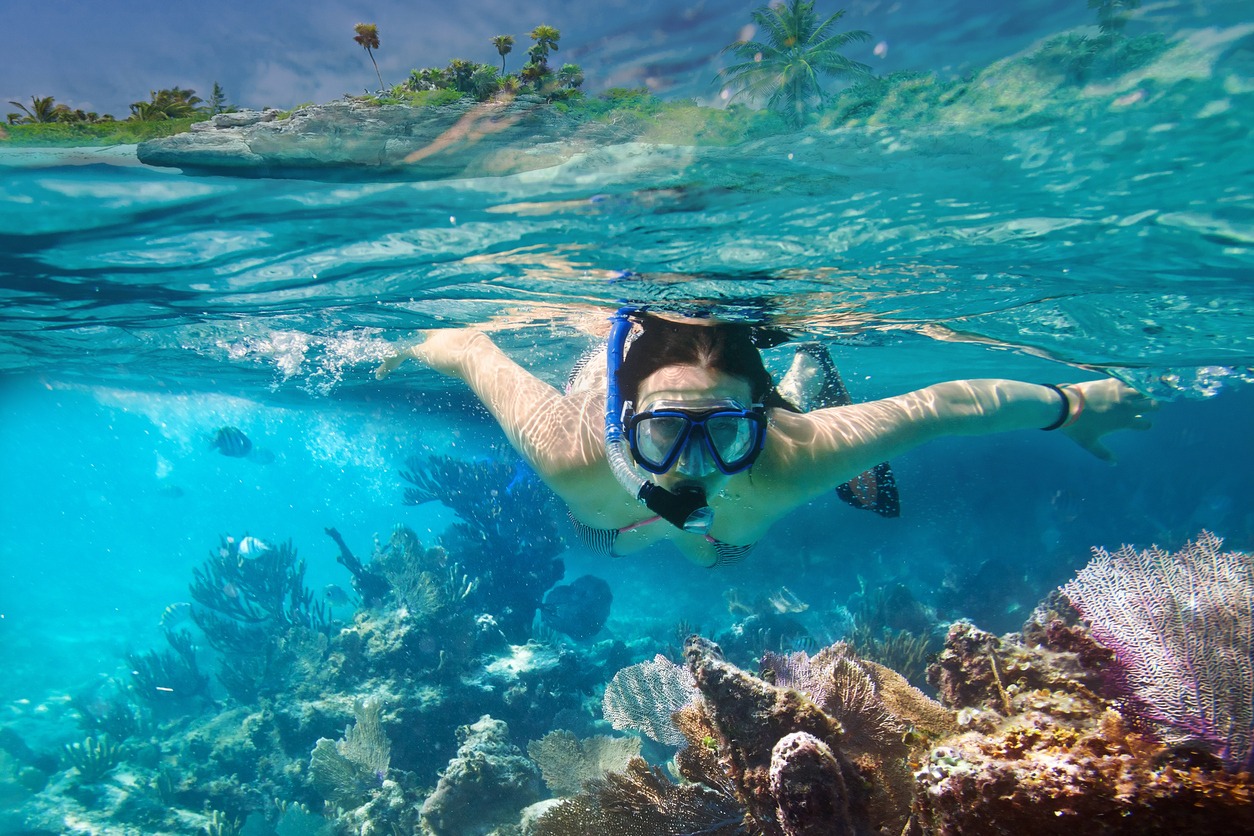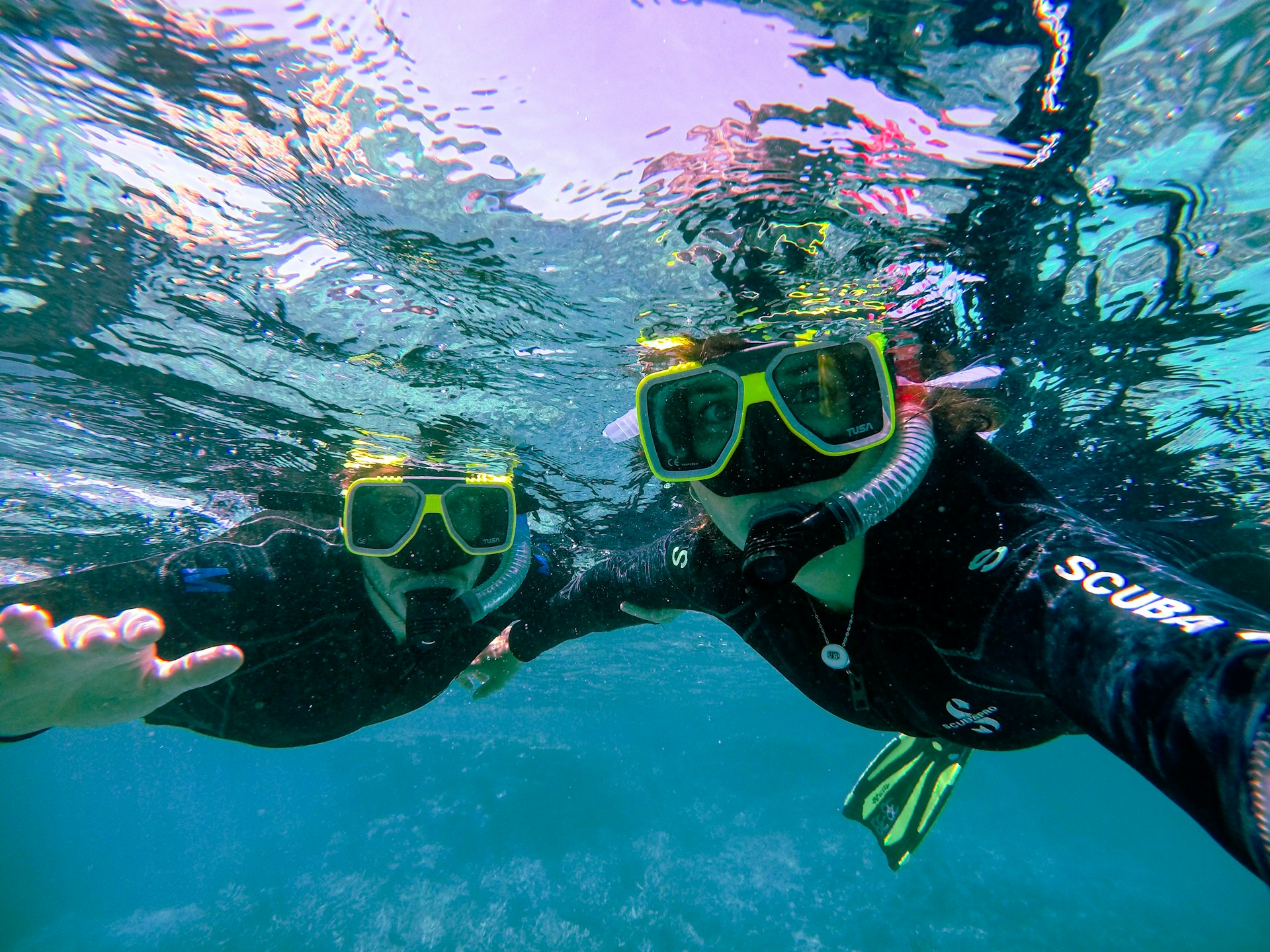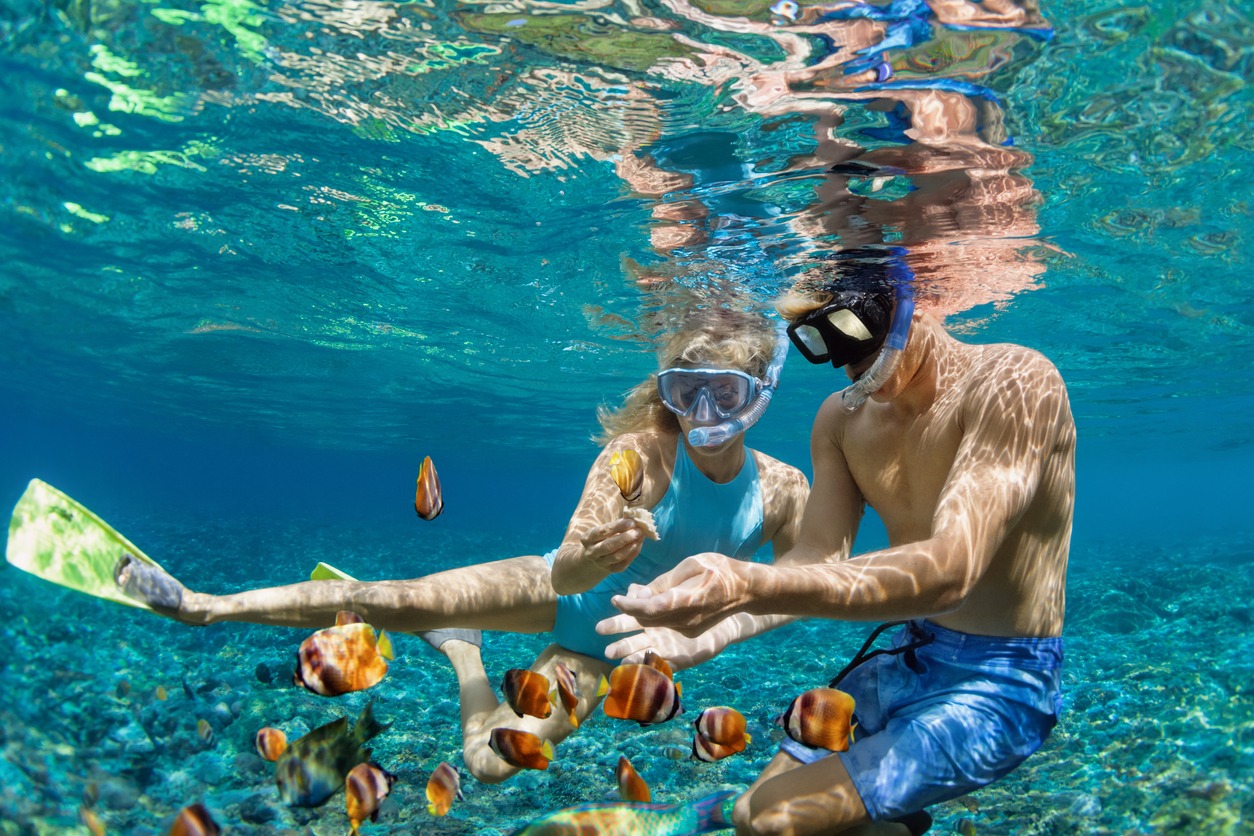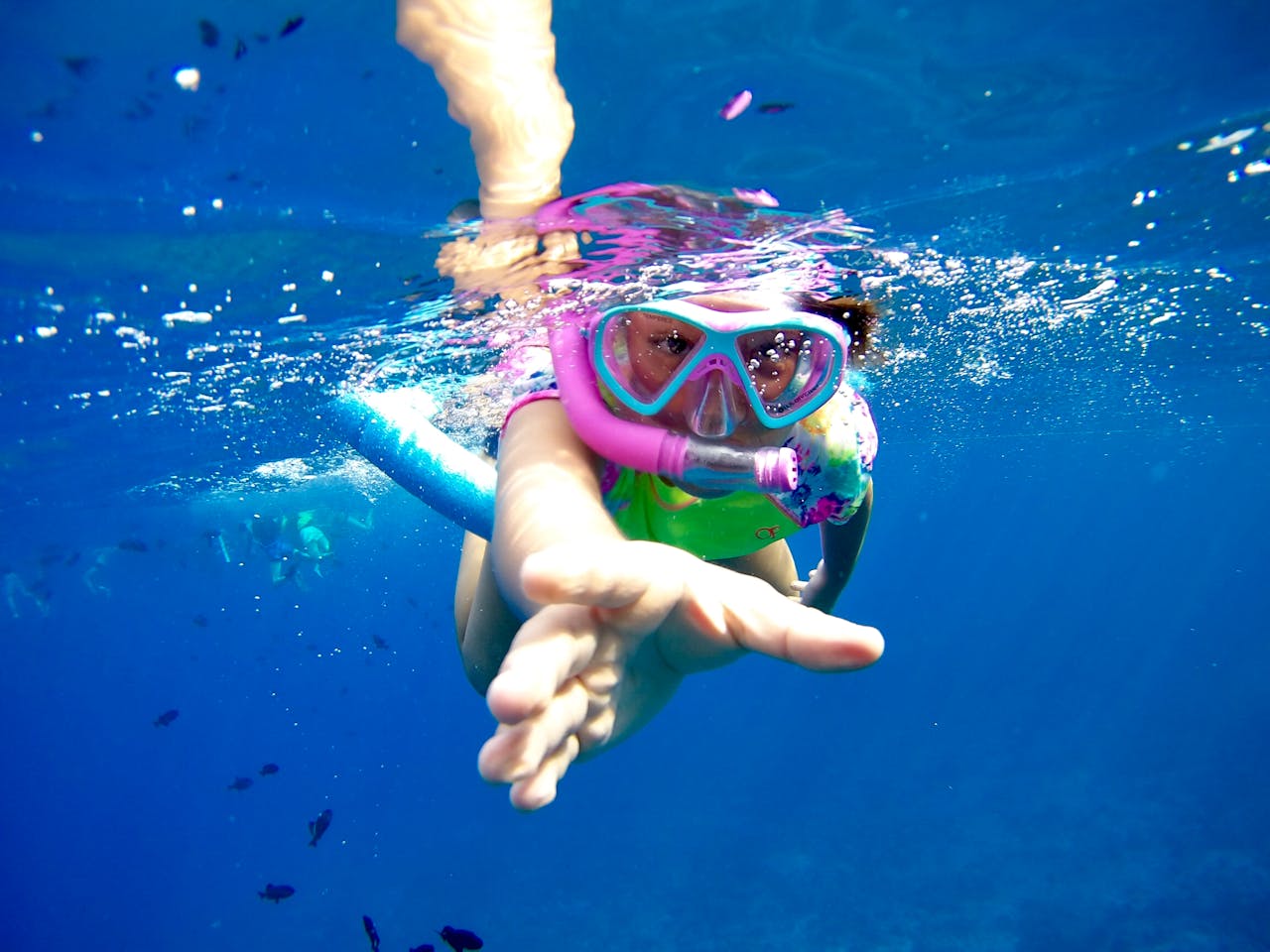Can a Non-Swimmer Go Snorkeling? Tips and Advice
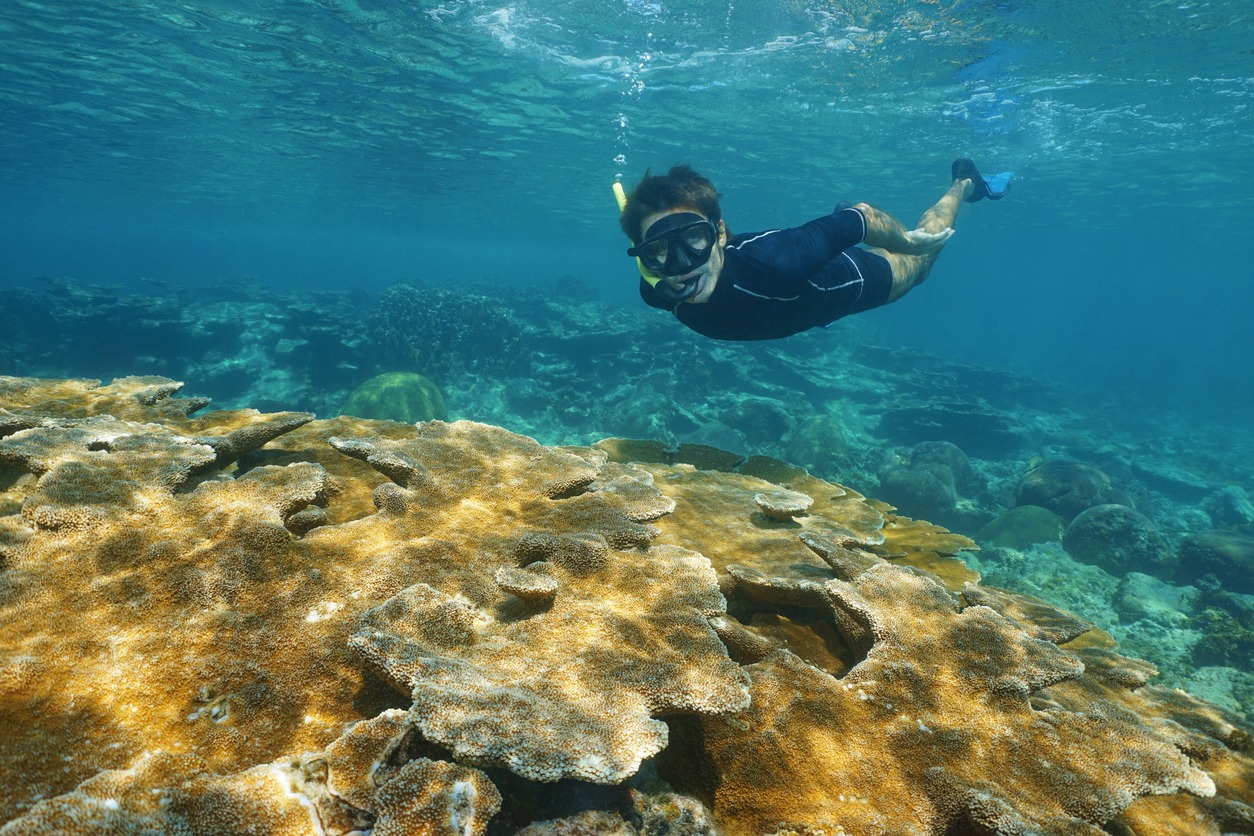
Yes, you can go snorkeling as a non-swimmer with proper precautions. Always communicate your abilities to tour operators and wear a well-fitted life jacket. Start in shallow, calm waters with close supervision. Choose reputable guided tours that cater to non-swimmers and provide essential gear. Consider using full-face masks for easier breathing and buoyancy aids like snorkel vests. Practice with equipment in a pool before open water. Build confidence gradually by taking swimming lessons and starting with short sessions. Remember, there are also alternative experiences like semi-submersible submarines or clear kayaks. With the right approach, you'll uncover a whole new underwater world.
Safety Considerations for Non-Swimmers
When it comes to snorkeling for non-swimmers, safety should be your top priority. Before booking a snorkel excursion, it's vital to communicate your swimming abilities to the tour operator. This information allows them to make necessary accommodations and guarantee your safety in the ocean. Reported cases of drowning while snorkeling highlight the importance of proper training and equipment.
Wearing a properly-fitted life jacket or floatation device is essential for non-swimmers. These provide buoyancy and reduce the risk of drowning, allowing you to remain aware and comfortable in the water. Choose a reputable tour operator experienced in accommodating non-swimmers and follow their safety guidelines closely.
To build your confidence and snorkeling skills, start in shallow, calm waters with close supervision from guides. It's also beneficial to take swimming lessons and practice with snorkeling equipment in a pool before your trip. This preparation will help you develop the necessary skills and comfort level to snorkel without being able to swim proficiently.
Choosing the Right Equipment
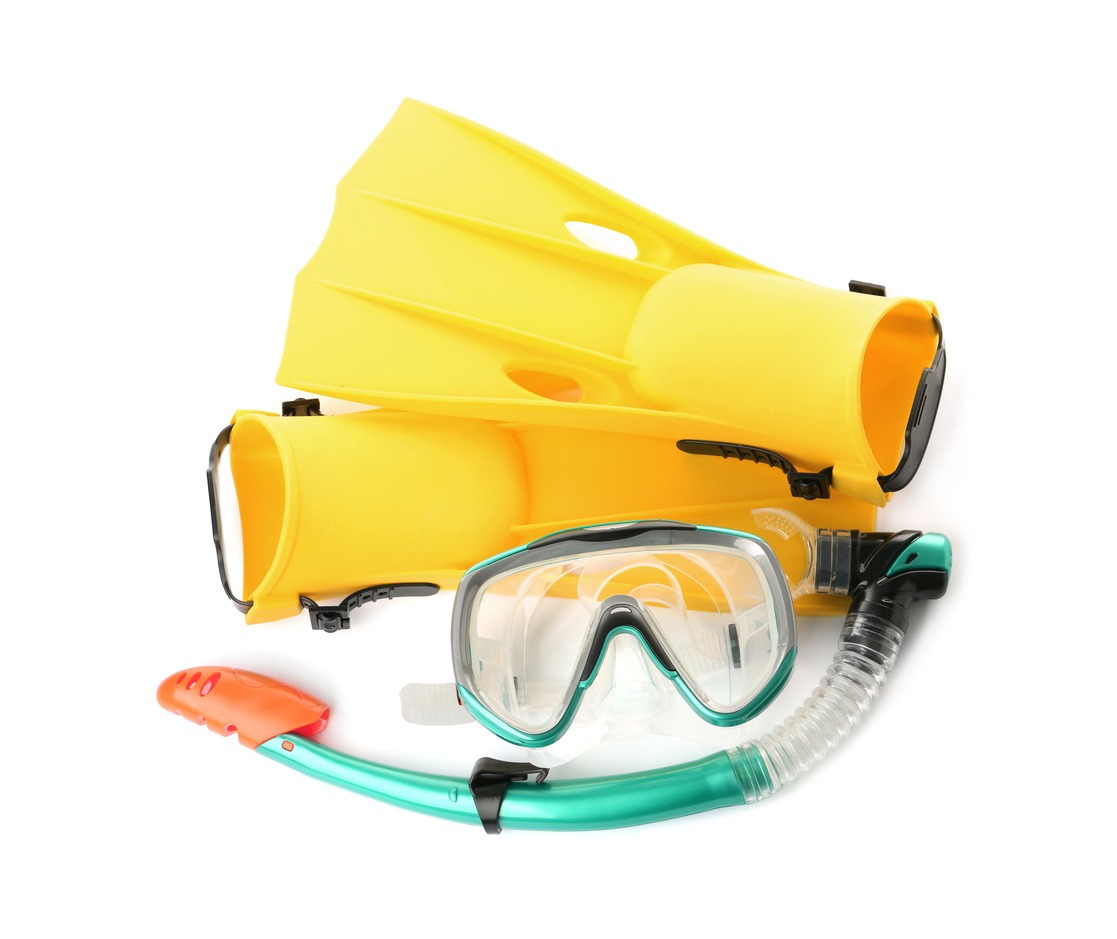
Selecting the right equipment is essential for non-swimmers venturing into snorkeling. You'll want to invest in a well-fitted mask, snorkel, and fins that are comfortable and seal properly. Consider opting for a full-face mask, which can provide easier breathing and enhanced visibility compared to traditional setups. Don't forget about buoyancy aids like life jackets or snorkel vests, which are pivotal for maintaining proper positioning and staying afloat. Proper fit is crucial for comfort and function when choosing a snorkel mask.
Before hitting the open water, it's important to test your gear in a pool or shallow water. This practice allows you to:
- Become familiar with the equipment
- Build confidence in your abilities
- Identify any issues with fit or function
Proper equipment maintenance is key to ensuring optimal performance and safety. Regularly replace seals and valves, and clean your gear after each use. By taking care of your equipment, you'll extend its lifespan and minimize the risk of malfunctions during your snorkeling expeditions.
Guided Tours and Instruction
Safety and confidence are paramount for non-swimmers venturing into snorkeling. If you're planning your First Time Snorkeling without knowing how to swim, guided tours and instruction are your best bet. These experiences offer qualified personal guidance to help you feel comfortable in the water.
When you choose a place for snorkeling trips, make sure to opt for reputable tour operators who accommodate non-swimmers. They'll provide essential snorkeling gear and life jackets, ensuring your safety throughout the experience. An experienced instructor or guide will be there to offer personalized assistance, teaching you everything you need to know about equipment fitting, proper breathing techniques, and safe water entry and exit.
To build your confidence before the main event, consider taking pre-trip lessons in a pool or calm waters. This will help you get accustomed to the snorkeling gear and basic skills. Remember, you can snorkel without knowing how to swim, but it's indispensable to follow your guide's instructions and use the provided flotation devices. With the right support and preparation, you'll be able to enjoy the underwater world safely and comfortably.
Building Confidence in Water
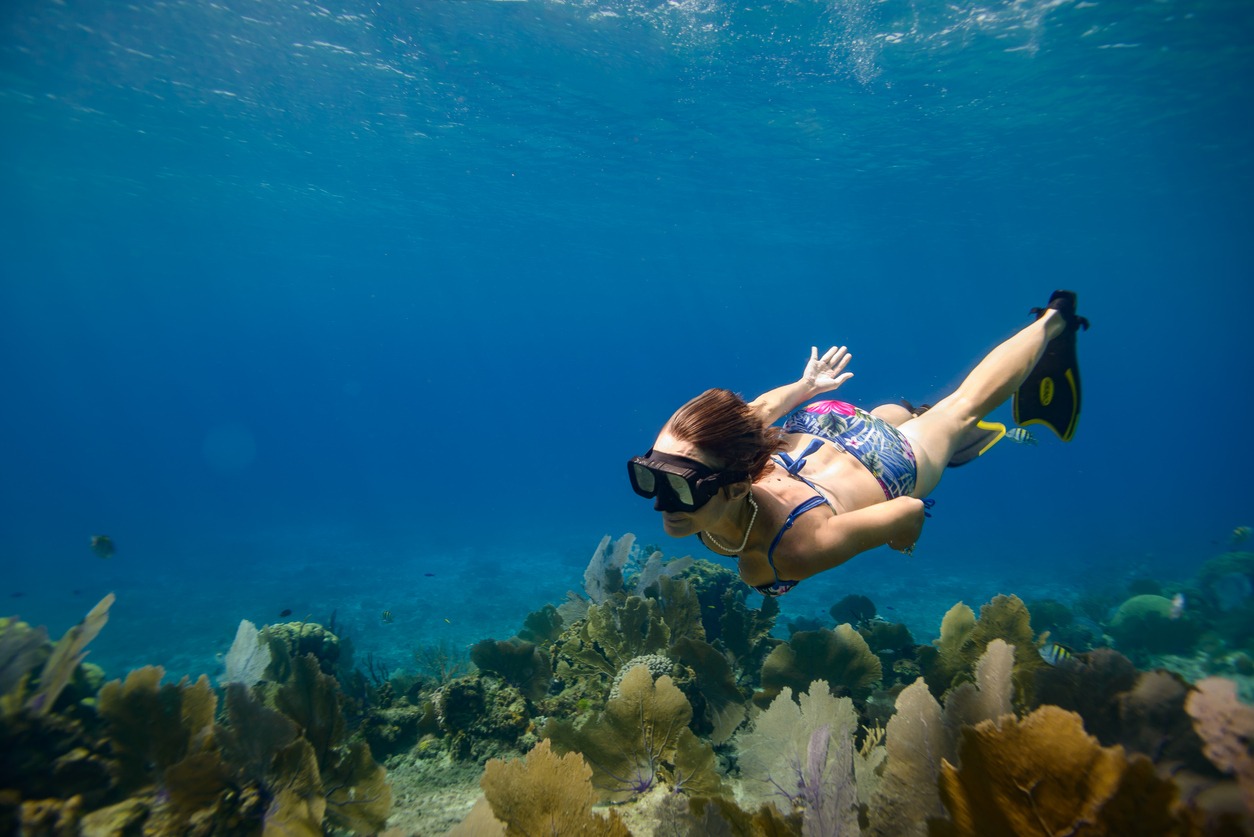
Building confidence in water is a key step for non-swimmers who want to try snorkeling. To build confidence and prepare for water-based activities, you should consider taking swimming lessons. These lessons will help you develop essential skills and feel more comfortable in aquatic environments.
As you progress, practice in shallow pools or calm lakes to familiarize yourself with snorkeling equipment. Focus on becoming comfortable with breathing through a snorkel while floating on the surface. To enhance your safety and security, use a life jacket or snorkel vest during your initial experiences.
When you're ready to venture into open water, choose gentle locations with clear visibility and minimal currents. This will help you feel at ease in the water and allow you to concentrate on enjoying the underwater scenery. Consider snorkeling with an experienced guide or in a small group to receive additional support and guidance.
To further build your confidence as a non-swimmer who wants to snorkel:
- Start with short sessions in shallow water
- Practice floating and treading water
- Gradually increase your time and distance from shore
Alternative Snorkeling Experiences
Uncover alternative snorkeling experiences that don't require swimming skills. If you're a non-swimmer, you can still enjoy the underwater world through various options. Semi-submersible submarines and clear kayaks offer a unique viewpoint of marine life without getting wet. These surface sport alternatives allow you to observe aquatic creatures from the safety of a vessel.
For a more immersive experience, try floating devices with viewing windows. These keep you on the surface while providing a glimpse into the underwater domain. Guided boat trips are another excellent choice, offering close supervision and easy access to safety if needed.
If you're comfortable in shallow water, consider snorkeling in calm, standing-depth areas. This allows you to observe marine life while keeping your feet firmly planted on the seafloor. For those with limited swimming abilities, start in a controlled environment like a pool. This helps build confidence before venturing into open water.

